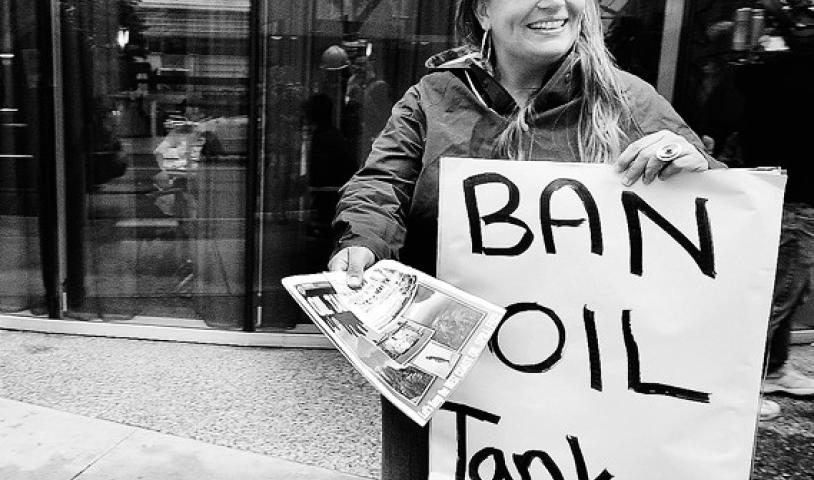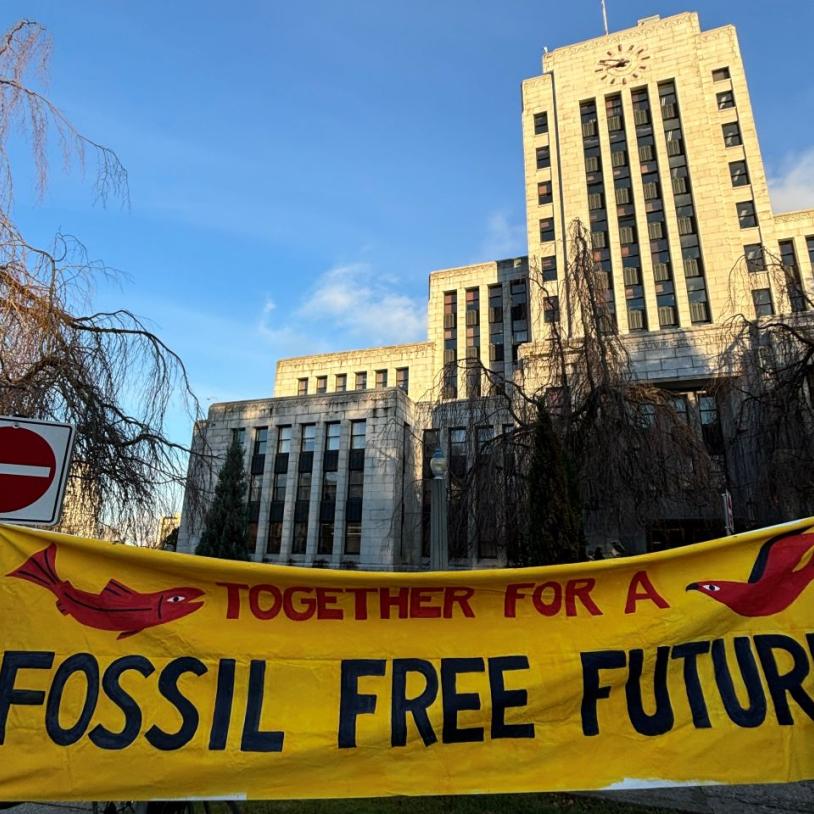Tanker‑traffic ban sought
Friday, September 24, 2010
Protesters see potential for 'devastating' Burrard Inlet spill
A group of protesters waved placards outside a Vancouver Board of Trade meeting Thursday calling for a ban on oil-tanker traffic in Burrard Inlet.
The protest was aimed at drawing attention to a forum on tanker safety given by two senior members of the shipping industry.
"We're really concerned that there hasn't been a public process to even talk about oil tankers," said Ben West, a campaigner for the Wilderness Committee. "It's only a matter of time before there will be an oil spill. And just one spill would be totally devastating."
West said there have been two oil spills this year involving double-hulled tankers in Texas and Singapore.
"Accidents happen," he added. "To say these things are safe is not true."
Protesters are worried about tankers carrying up to 700,000 barrels of Alberta tarsands crude from Kinder Morgan's Westridge Terminal, through the Second Narrows.
They say the industry has plans to increase the number of tankers from two to 10 per week.
Rex Wyler of the No Tanks coalition said that a spill in Vancouver's harbour could devastate the entire coast.
"The people of Vancouver should stand up and say, 'No, we don't want to be the tarsands oil port,'" he said.
No Tanks and the Wilderness Committee are planning a rally with a flotilla of vessels in English Bay on Oct. 17, and supporters on the beach.
The board of trade heard from Joe Angelo, deputy managing director of the International Association of Independent Tanker Owners (Intertanko) and Bill Lind, of the American Bureau of Shipping.
Angelo said that, unlike offshore drilling, tankers have to conform to a set of "rigorous" international requirements governing their design, construction and operation.
Asked later about tankers in Burrard Inlet, Angelo said the situation in Vancouver isn't unique.
Environmentalists should look at places like the Bosphorous Strait, where tankers sail from the Black Sea out to the Mediterranean.
"These areas didn't ban tankers," he said. "What they did was look at some of the navigational measures so it can be done in a very safe and environmentally sound manner."
He said the Bosphorous has a "one-way" traffic system when a tanker is coming through to "minimize" any incidents.
"There are other places in the world that are even more dangerous than here and [tanker traffic] is being done safely," added Angelo. "While I recognize what I just said may not make people feel warm and fuzzy inside, it may cause them to think, 'Let's go see what exists in other places? How is that similar to what we have here and what are they doing that would address our concerns?'"





